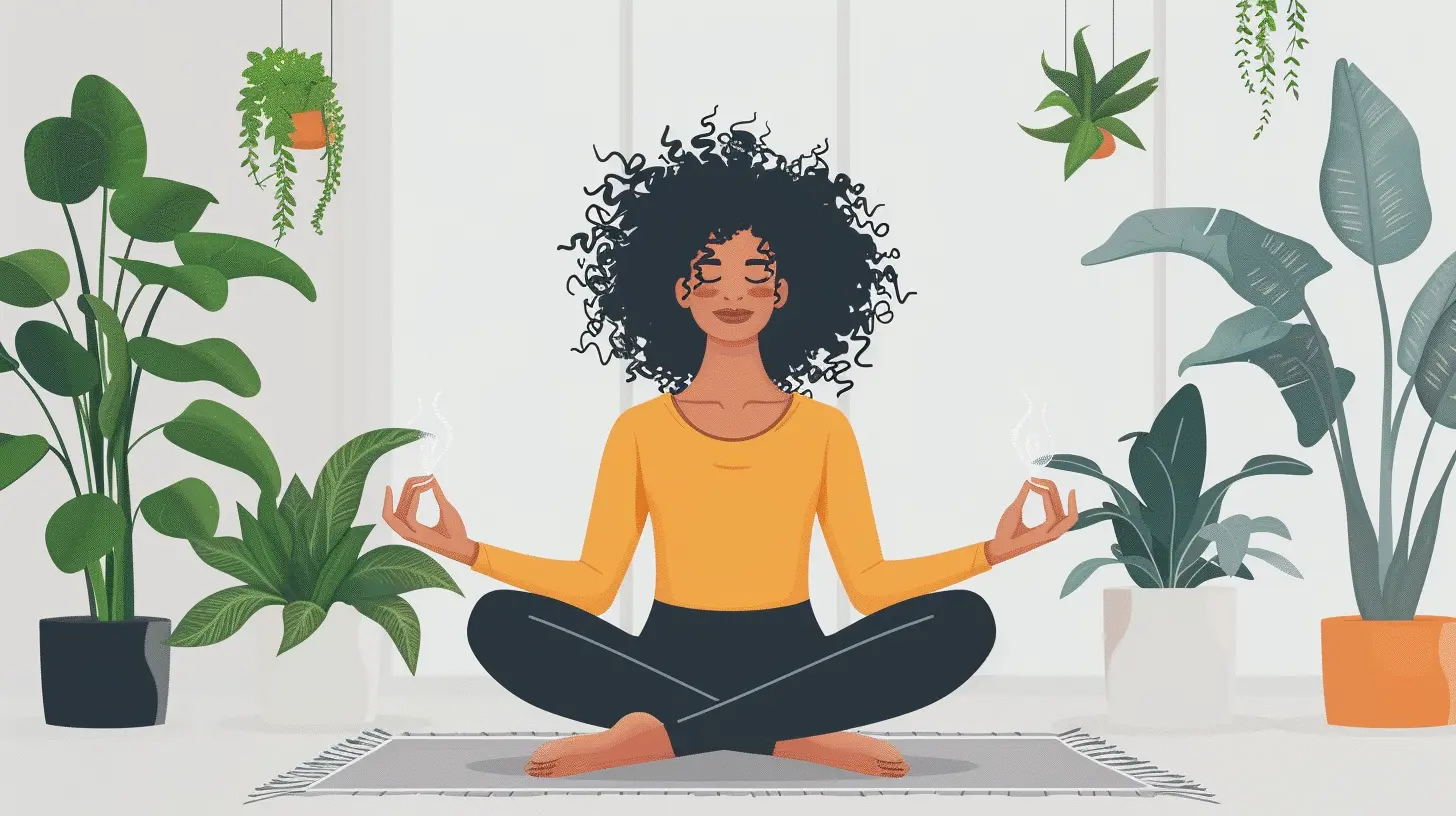Boost Your Mental Health with Mindfulness Practices
13 August 2025
In today's fast-paced world, it's easy to feel overwhelmed, stressed, and emotionally drained. We juggle work, relationships, and personal responsibilities, often forgetting to take a moment to breathe. But what if I told you there's a simple yet powerful way to regain control of your mind and emotions? Enter mindfulness.
Mindfulness isn't just a buzzword—it's a science-backed practice that can improve your mental well-being, reduce stress, and help you truly enjoy the present moment. So, if you've been feeling mentally exhausted, stick around because we're about to dive deep into how mindfulness can transform your life.

What Is Mindfulness?
At its core, mindfulness is the art of being fully present in the moment. It means paying attention to your thoughts, feelings, and surroundings without judgment. Sounds simple, right? But in a world where we’re constantly multitasking and glued to our screens, mindfulness can feel like a superpower.Think of your mind like a cluttered room. Practicing mindfulness is like cleaning up the mess—removing unnecessary distractions and creating a peaceful, organized space where you can think clearly.

The Science Behind Mindfulness and Mental Health
Mindfulness isn’t just a feel-good practice; it's backed by science. Studies show that mindfulness can:- Reduce stress and anxiety – Mindfulness lowers cortisol, the stress hormone, making you feel more at ease.
- Enhance emotional regulation – It helps you manage emotions better, so you're less reactive in stressful situations.
- Improve focus and concentration – By training your brain to focus on the present, mindfulness sharpens your attention span.
- Boost overall happiness – Practicing mindfulness increases activity in the prefrontal cortex, the brain region linked to positive emotions.
Simply put, mindfulness rewires your brain for mental clarity and emotional resilience.

Simple Mindfulness Practices to Boost Your Mental Health
Now that we know why mindfulness is essential, let’s dive into easy practices you can incorporate into your daily routine.1. Mindful Breathing
Breathing is something we do all the time, but how often do we actually notice it? Mindful breathing is one of the easiest ways to bring yourself into the present moment.Try this:
- Sit comfortably and close your eyes.- Take a deep breath in through your nose, hold for a second, and slowly exhale through your mouth.
- Focus solely on your breath—notice how it feels as it enters and leaves your body.
- If your mind wanders (and it will), gently bring your attention back to your breath.
Do this for just five minutes a day, and you'll start noticing a difference in your mood and stress levels.
2. Body Scan Meditation
Ever feel like your body is carrying stress in places you didn’t even realize? A body scan meditation helps you tune in to physical sensations and release tension.How to do it:
- Lie down or sit in a quiet space.- Close your eyes and take a few deep breaths.
- Slowly bring your attention to different parts of your body, from your head to your toes.
- Notice any tension or discomfort, and consciously relax those areas.
This practice helps you reconnect with your body and signals to your brain that it’s time to unwind.
3. Mindful Eating
How often do you eat while scrolling through your phone or watching TV? Mindful eating encourages you to slow down and actually savor your food.Give it a try:
- Before eating, take a moment to look at your food. Notice the colors, textures, and smells.- Take small bites and chew slowly, paying attention to the taste and sensations.
- Eat without distractions—no phone, no TV, just you and your meal.
Not only does mindful eating enhance your relationship with food, but it also improves digestion and prevents overeating.
4. Gratitude Journaling
A grateful heart is a happy heart! Keeping a gratitude journal helps shift your focus from what's wrong to what's going right in your life.How to start:
- Every night, write down three things you're grateful for.- They can be big (a promotion at work) or small (a warm cup of coffee in the morning).
- The key is to truly feel gratitude as you write them down.
Over time, this practice rewires your brain to focus on the positives, boosting your overall happiness.
5. Mindful Walking
Walking isn't just for exercise—it can be a powerful mindfulness practice too.Next time you go for a walk:
- Pay attention to the sensation of your feet touching the ground.- Observe the sights, sounds, and smells around you.
- Feel the rhythm of your breath as you move.
Mindful walking turns an ordinary stroll into a grounding, peaceful experience.
6. Letting Go of Negative Thoughts
We all have intrusive thoughts—those nagging worries and doubts that creep into our minds. The trick isn’t to fight them but to acknowledge and release them.Try this:
- When a negative thought arises, instead of engaging with it, just notice it.- Imagine placing the thought on a cloud and watching it float away.
- Remind yourself that thoughts are just thoughts—they don’t define you.
This practice helps break the cycle of negative thinking, reducing stress and anxiety over time.

Making Mindfulness a Daily Habit
Like any new habit, mindfulness takes time and consistency. Here are a few tips to make it a natural part of your day:- Start small – Even 5 minutes of mindfulness can make a difference.
- Set reminders – Use alarms or sticky notes to remind yourself to be present.
- Integrate into daily activities – You can practice mindfulness while brushing your teeth, doing the dishes, or commuting.
- Be patient with yourself – Some days will be easier than others, and that’s okay.
The Bottom Line
Boosting your mental health doesn’t always require big changes. Sometimes, it’s the small, mindful moments that make the biggest difference. By practicing mindfulness regularly, you’ll find yourself more present, less stressed, and overall happier.So, why not give it a shot? Take a deep breath, slow down, and truly experience the world around you. Your mind will thank you for it.
all images in this post were generated using AI tools
Category:
WellnessAuthor:

Angelo McGillivray
Discussion
rate this article
1 comments
Zara Hodge
Great article! Mindfulness practices are essential for improving mental health. Simple techniques like meditation and deep breathing can make a significant difference in managing stress and enhancing well-being.
August 28, 2025 at 4:38 PM

Angelo McGillivray
Thank you for your thoughtful comment! I'm glad you found the article helpful—mindfulness truly can transform mental health!


